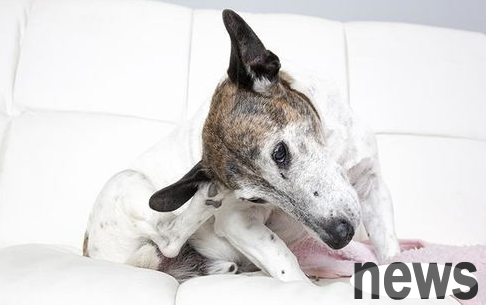Nowadays, many dogs are regarded as the pearl in their eyes by their owners, and they want to give them the best food, clothing, housing and transportation. Especially when eating, most dogs are greedy, and the owners will always find ways to satisf...
Nowadays, many dogs are regarded as the pearl in their eyes by their owners, and they want to give them the best food, clothing, housing and transportation. Especially when eating, most dogs are greedy, and the owners will always find ways to satisfy them. Various snacks or supplements are continuously supplied. But in fact, this may cause the dog to always scratch, because these foods may contain substances that make the dog allergic.

Skin food adverse reactions in dogs
Skin food adverse reactions are caused by food abnormalities, including food hypersensitivities and food intolerances. According to statistics, 62% of dogs suffering from allergic skin diseases are caused by adverse skin food reactions. In other words, more than half of dogs with skin allergies are caused by food factors.
Food allergies are actually a problem with the dog's immune system. There is no way to accurately determine whether these substances entering the dog's body are harmful, so they treat them as harmful substances such as bacteria and viruses. Overreaction of the immune system causes allergic symptoms to the dog. Foods like corn, peanuts, wheat, protein and pork may become allergens.
In addition, some dogs lack corresponding enzymes in their bodies, resulting in food intolerance. For example, human lactose intolerance is because its digestive system lacks the lactase necessary to hydrolyze lactose, or is particularly sensitive to other chemicals contained in food. For example, some people are intolerant of caffeine and will feel uncomfortable if they drink caffeine-containing beverages.
Food allergies are most common in dogs aged 2-6, and there is also a certain breed tendency. American cocker spaniel, boxer dog, Curly collie, dachshund, German shepherd, golden retriever, mini schnauzer, poodle and West Highland White Terrier are more likely to be allergic than other dogs. Some owners know that dogs are allergic and may buy some hypoallergenic dog food, hoping to control it. Because every dog responds to allergies differently, there is no hypoallergenic diet suitable for all dogs. The U.S. Food and Drug Administration said diets labeled with allergy control can only be prescribed and traded by pet doctors.
Symptoms of food allergies for dogs
Dogs at home often scratch their itch, and many owners simply think they are skin diseases. But this may be because the food causes skin allergies because the owner does not realize it, so he keeps letting the dog eat food that makes it allergic. Generally speaking, symptoms of food sensitivity include frequent itching and hair loss, inflammation, redness and swelling of the skin, such as redness and swelling around the eyes, ventral side of the ears, vagina or anus, and symptoms such as vomiting, diarrhea, and bloating. Usually, allergic symptoms are most often reflected in the skin and digestive system, but it does not mean that all abnormalities in the skin and digestive system are caused by food allergies. If you are suspected of having food allergies, it is best to take the dog to the hospital for examination and rule out other possible diseases.

Treatment for food allergies in dogs
The only way to treat food allergies in dogs is to find out allergens. Usually, after avoiding specific ingredients, the dog's allergic reaction can be cured without treatment. But finding allergens is not easy, because there are many causes of allergies to dogs, and different allergic diseases often appear interactively, making judgments much more difficult.
For testing allergens, doctors will use the elimination method to conduct a 10-12-week food allergy diagnosis to determine the dog's allergen. Let the dog eat a special food that contains a unique source of protein, which it has never eaten before, so it should not be allergic. If the dog is found to have no allergic reactions, the initial ingredients in its diet will be added to the diet one at a time to see which food will cause symptoms to recur. After confirming the allergen, avoid feeding this food to the dog in the future and you will no longer be allergic.
In fact, many times, dogs' food allergies are caused by their owner's negligence. If the shoveler wants to change dog food or try new things, it is best to let the dog taste a little first to see if the dog will have adverse reactions, and then increase the amount as appropriate.